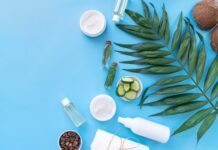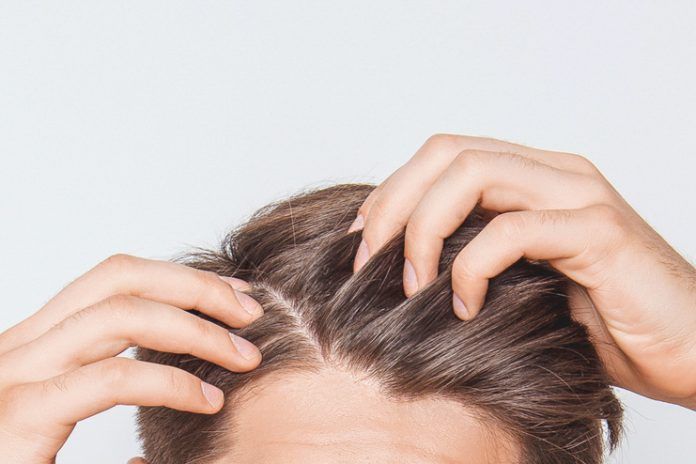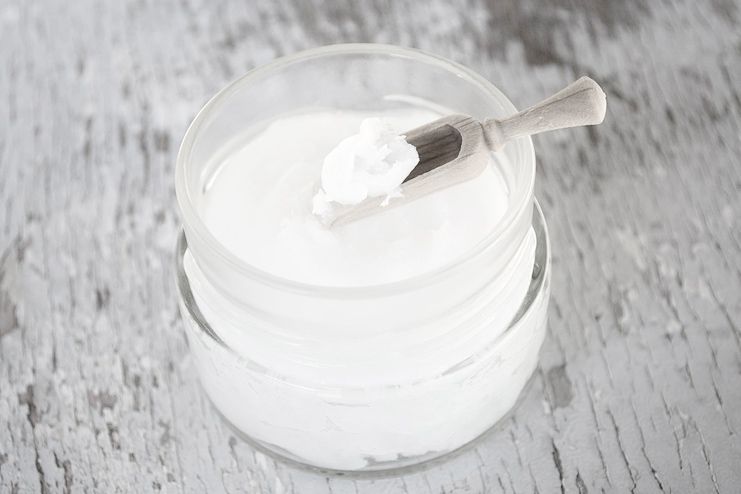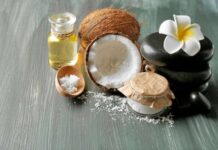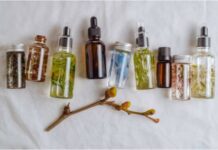Affiliate Disclaimer
Some links in this article are affiliate links. We may earn a small commission if you make a purchase through these links, at no extra cost to you. We only recommend products we find useful to our readersScalp Scabs: Dryness in the body can rise due to several underlying reasons but what is astonishing to note is the fact that even the scalp can be projected to dryness. Were you only aware of dandruff as an outcome for dryness on the scalp? Well, scabs on scalp are yet another side effect one experiences if they have a dry or uncontrollably oily scalp – extremities.
Even though the scalp scabs don’t necessarily point towards any significant health ailment, the condition is very irritating and unpleasant on the scalp which is what sets people off. In a majority of the cases, scabs on the scalp tend to clear out on their own. But what if it doesn’t?
Don’t worry! We have got your back (and your scalp too).
In this article, we are going to focus on the most effective natural remedies for scabs on scalp that can help it heal and cure the problem right from its roots.
What are Scabs on Scalp?
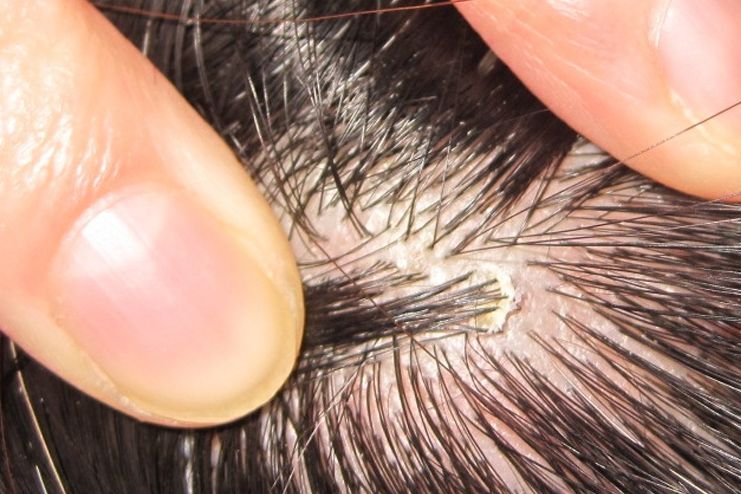
Scabs on the scalp are raised yellow crusty patches on the upper layer of the scalp itself. These scabs may also dark coloured instead of just being whitish or yellow and severe scratching or irritation often leads to bleeding as well.
Scalp scabs may be itchy, irritating, and painful and appear randomly anywhere on the scalp. It may be localized to a single spot or be scattered around the entire scalp. These scabs on the scalp are minor lesions, and cause of scabs can be attributed to scratching hair, pulling and picking dandruff, tight braids and pony.
These may not pose any health condition, but they are painful and displeasing.
If these scabs on the scalp are not treated, they may result in a bad and unpleasant odor in addition to the displeasing look. Don’t worry if you have scalp scabs as there are ways to treat them easily and quickly.
What Causes Scabs on Scalp?
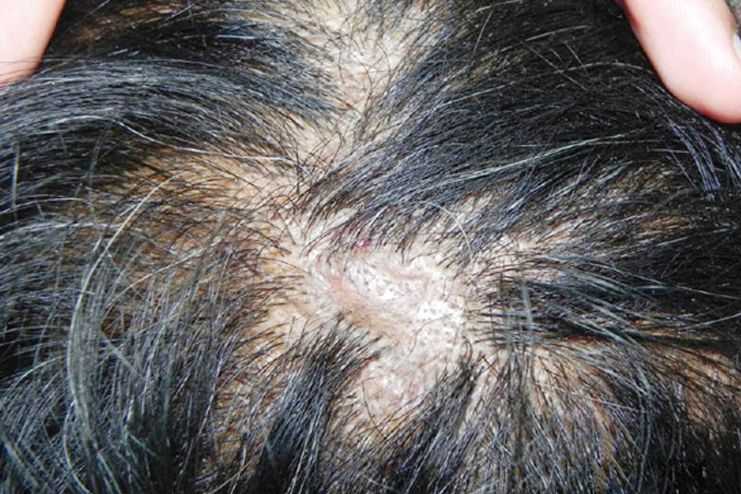
The possible causes behind the scalp scabs don’t really limit itself to just one or two but a lot more than that. It can range from several reasons relating to the scalp health or even extend to other underlying physiological reasons that not many people are often even aware of.
Persistent scratching and picking the scalp damages the outer layer of the skin. When the skin tries to heal itself, it forms yellow, red crusted tissues to accumulate which is called a scab. Scalp scabs can be due to lice, nits, dandruff, eczema, psoriasis or other skin conditions.
Some of the primary causes of scabs on scalp include:
- Dandruff: Dandruff is a very common problem and a majority of us are affected with this skin ailment. It tends to make our skin scaly, itchy and flaky. With severe dandruff, comes a yellow or red scaly pimple stuck up at the hairline behind the ears. When pimples mature and break, the skin begins to heal by forming crusty patches. These cause immense itchiness and resulting into scratching and actuating scabs on the scalp.
- Eczema or Psoriasis: Both eczema and psoriasis can cause scalp scabbing and cause tiny white patches over the head. These induce scratching, and these tiny white flakes get shredded to entire hair length. The scalp eczema and psoriasis cause skin patches and lesions. These result in scratching and wounds and gets further aggravated causing more itchiness in the process. These scabs won’t go away and keep coming up again and again.
- Oily Scalp: Oily hair and scalp can be one of the main causes of scabs in the scalp. Oily secretion cause sores, dandruff, scaly skin, flaky skin and constant scratching sensations. When your scalp starts secreting excess oil, it tends to make the scalp dirtier faster which ends up causing clogged pore and rashes, which then transforms into scabs when it starts drying.
- Excess Usage of Chemical Hair Dyes: Most people have allergies from these harsh chemical based hair colors, and soon after applying dye or color they see scabs on their scalp. Mild to severe itching results as soon as the hair color is applied and with continuous scratching, it gets aggravated. The common ingredient in hair color that causes these severe allergies is para-phenylenediamine.
- Tying Your Hair Way Too Tight: Excessive tight hairdos like that of braids, buns etc often tend to restrict the sweat to dry which not just makes the hair follicles weaker but also ends up causing excess secretion of oil in the scalp. This, in turn, contributes to the inception of the scabs on scalp.
- Presence of lice in the hair: Lice and nits in hair cause immense scratchy and itchy sensations, thus prompting hands to stay in hair. This results in picking and causing the skin dermis layer to break in some areas on the scalp. Nits on hair follicles and shafts are visible and cause a lot of discomforts. These result in a lot of scabs on scalp.
- Skin Cancer: Our bare skin is more prone to possible affects of skin cancer because of it’s directly exposure to the sun – the scalp being one of them. These tend to cause skin sores and rashes on the skin which end up being the primary cause behind the scalp scabs.
- As a Side Effect of Shingles and Ringworm: Shingles and Ringworms are also two different forms of skin diseases which adversely affect the skin and leave behind the dead and scaly skin. The consistent itching that comes with these diseases often plays the crucial factor behind the induction of scabs on the scalp.
- Lupus lesions: Lupus is a form of autoimmune disease in which the body loses the inhibition of distinguishing between its own healthy cells and the foreign particles and thus ends up attacking the healthy cells in the body. One of the major side effects of lupus is lesions and skin rashes which can occur on the scalp end up causing scabs which leave behind dead skin and residues that affect the skin adversely.
Symptoms of Scabs on Scalp
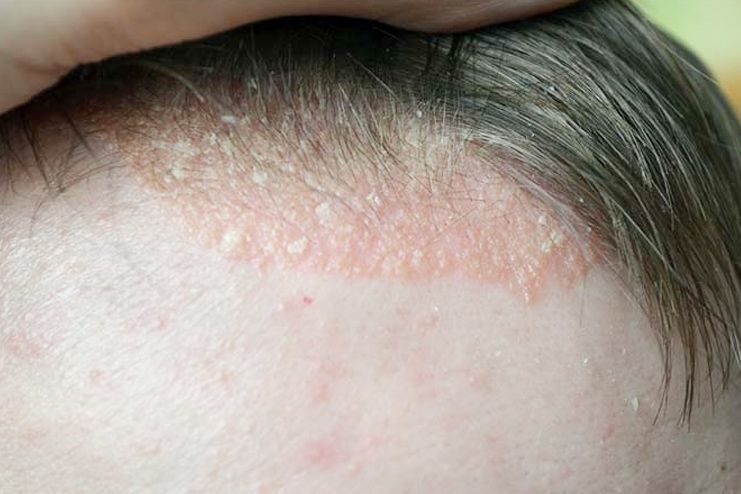
Now that we have covered the common causes behind the scalp scabs, let us focus on how you are going to distinguish them from the other form of skin disease.
Some of the common symptoms of scabs on scalp include:
- White, yellowish or sometimes even darker dead dermal layer on the scalp
- Rashes and redness around the area of the scab
- Consistent itchiness
- Irritation and burning sensation in severe stages
- Eventual hair loss
- Green pus in the scabs
Home Remedies for Scabs on Scalp
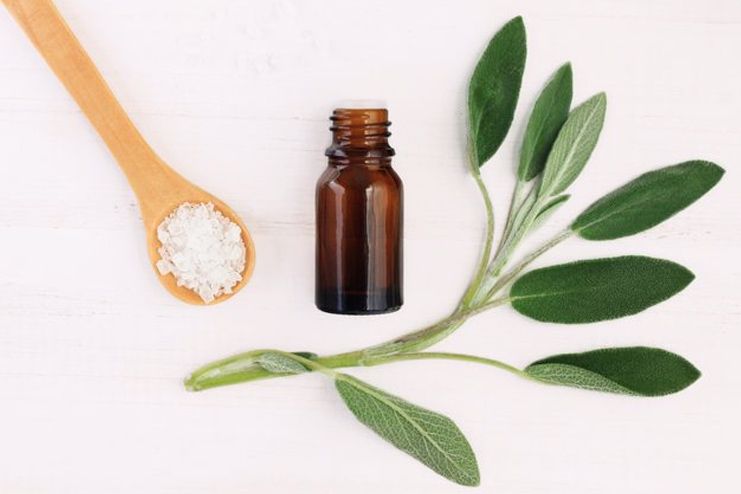
Home remedies for scabs are possibly one of the most inexpensive and effective ways to heal scalp scabs fast. While the over-the-counter remedies can definitely contribute to the process, it is always best to stick to natural remedies for scalp scabs which inflict little to no side effects.
- Coconut Oil
- Apple Cider Vinegar
- Tea Tree Oil
- Olive Oil
- Jojoba Oil
- Lemon Juice
- Warm Compress
- Warm Oil Massage
- Aloe Vera
- Oatmeal
- Listerine
- Borax
- Neem
- Fish Oil
- Tomato Yogurt Mask
- Eggs to Remove Scalp Scabs
1. Coconut Oil for Scabs on Scalp
Coconut oil contains saturated fats in it which is beneficial in the treatment for scalp scabs because it moistens the scalp and helps heal the dry and dead flaky skin that is often encountered in cases of scabs.
It also boosts the collagen production (R) in the scalp which is beneficial for the growth of health dermal layer of the skin on the scalp to wipe out the unwanted and dead dermal layer.
What To Do?
- Slightly warm some coconut oil
- Apply it on your scalp and massage it into the scalp
- You can even wrap your hand in a warm towel for added benefits
- Leave it on
- Shampoo the oil off the next day
How Often?
Three to four times a week or even regularly if you feel like it
Get Coconut Oil here
2. Apple Cider Vinegar for Scabs on Scalp
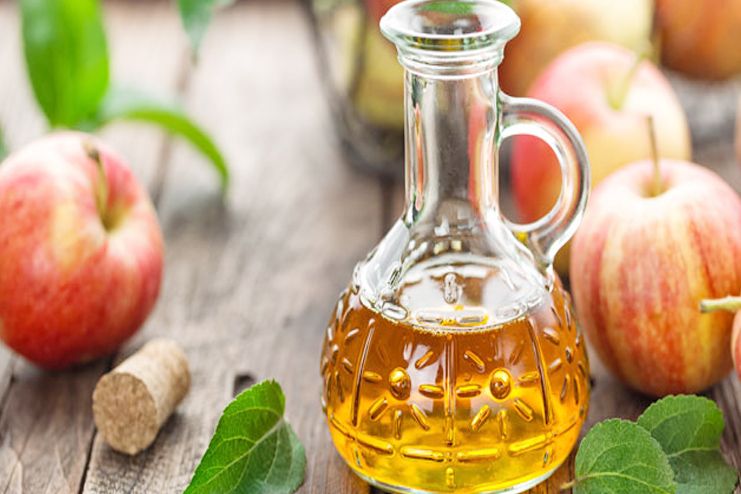
Apple cider vinegar not just has beneficial anti-inflammatory (R) but antimicrobial properties (R) too. It has disinfectant (R) properties which play a crucial role in getting rid of any form of infection that could be the possible reason behind the scabs on the scalp.
The mild acidic property also helps clean the hair and the scalp thus aiding in treating scabs on your scalp.
What To Do?
- Mix half cup of apple cider vinegar and a half cup of water
- Add this to a spray bottle
- Spray this onto your scalp while you are showering
- Let it seep into the scalp for 5-10 minutes
- Wash it off with a mild shampoo
How Often?
Repeat this process twice or thrice a week for noticeable results.
Get Apple Cider Vinegar Here
3. Tea Tree Oil For Scabs on Scalp
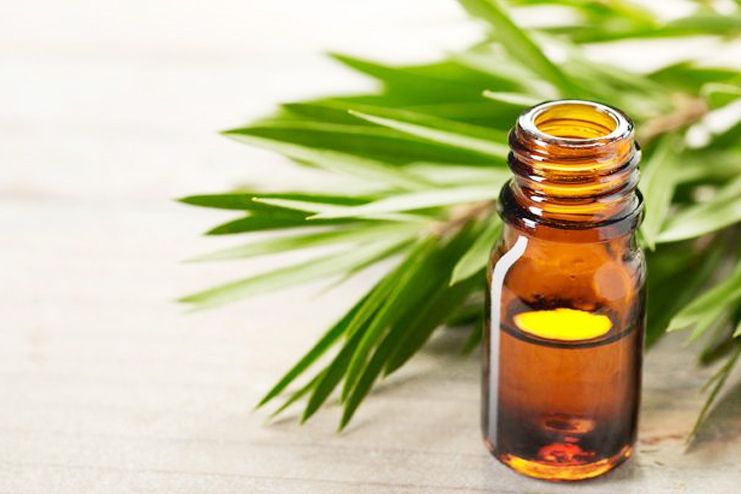
Tea tree oil has antibacterial (R) properties along with its moisturizing and healing properties which play out nicely as one of the best remedies for scalp scabs. Apart from this, it even possesses anti-fungal (R) and mild anti-inflammatory properties which cumulatively work to get rid of the scalp scabs.
What To Do?
- Pour a few drops of tea tree oil into any carrier oil
- Mix it well
- Dip a cotton ball into the oil mixture and apply it over the scabs and rashes
- Massage it in with gentle hands
- Leave it on
How Often?
Thrice or four times a week.
Get Tea Tree Oil here
4. Olive Oil For Scabs on Scalp
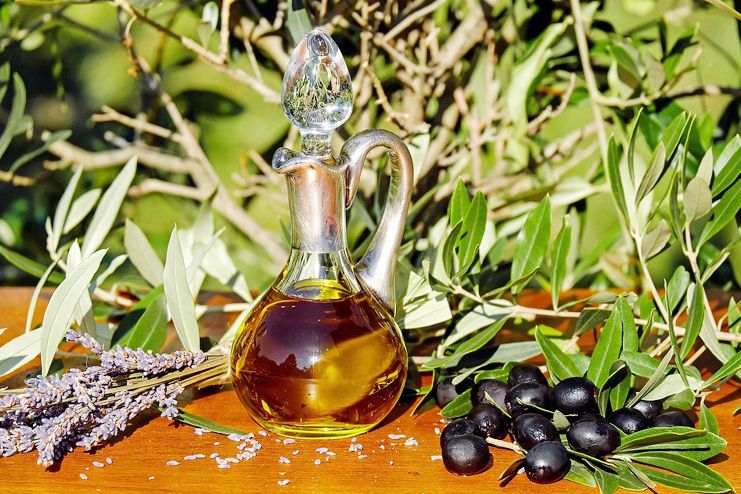 Olive oil contains squalene (R) which has moisturizing and healing benefits on the scalp scabs. If you are looking for any home remedy to treat scabs on the scalp and also to have healthy and soft hair, olive oil is definitely the one you need to go for.
Olive oil contains squalene (R) which has moisturizing and healing benefits on the scalp scabs. If you are looking for any home remedy to treat scabs on the scalp and also to have healthy and soft hair, olive oil is definitely the one you need to go for.
What To Do?
- Warm the olive oil for a few seconds
- Apply this on the scalp and massage it into the skin
- Leave it on for the entire night
- Wash it off with a mild and chemical free shampoo
How Often?
Thrice a week.
Get Olive Oil here
5. Jojoba Oil for Scabs on Scalp
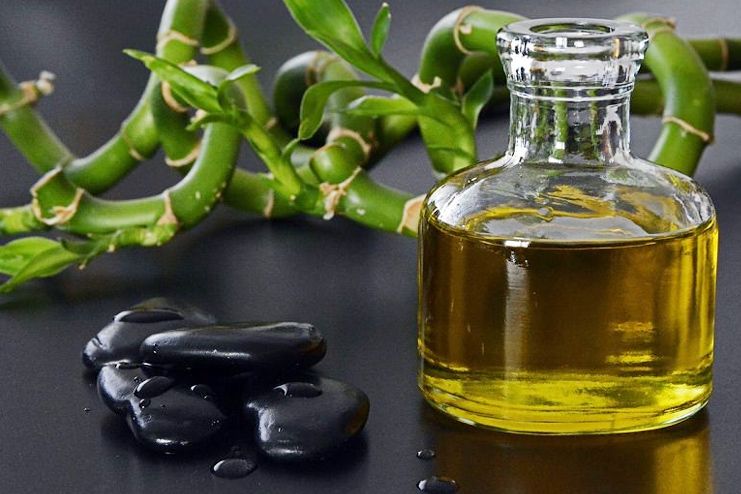
Yet another amazing remedy for scalp scabs treatment is that if jojoba oil. It has potent capabilities (R) of regulating the production of the natural oils in the scalp which is what ends up treating the scabs successfully and helps get rid of it for good.
What To Do?
- Take a coin sized amount of jojoba oil in your palm
- Apply it on your scalp, especially on the scabs and massage it into the skin
- Leave it overnight
- Wash it off the next day with any kind of mild shampoo
How Often?
Thrice a week.
Get Jojoba Oil here
6. Lemon Juice for Scabs on Scalp
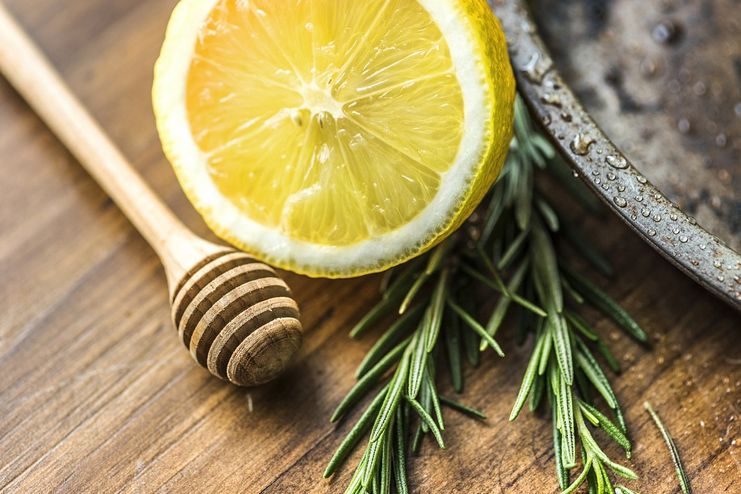 Lemon juice is jam packed with amazing antioxidants (R) and essential vitamins that are beneficial in healing the damaged skin on the scalp that could be the potential reason behind the scalp scab. Not just that, it is even loaded with amazing antibacterial (R) properties which helps cleanse the pores on the scalp and gets rid of any kind of clogged impurities that could be causing the rashes and lesions leading up to the scab.
Lemon juice is jam packed with amazing antioxidants (R) and essential vitamins that are beneficial in healing the damaged skin on the scalp that could be the potential reason behind the scalp scab. Not just that, it is even loaded with amazing antibacterial (R) properties which helps cleanse the pores on the scalp and gets rid of any kind of clogged impurities that could be causing the rashes and lesions leading up to the scab.
What To Do?
- Take a lemon and extract the juice out of it.
- Dip a cotton pad or cotton ball in the juice and apply it on the affected part of the area.
- Leave it on for 15 minutes
- Wash it off with lukewarm water
How Often?
Two to three times daily till the scabs go away.
7. Warm Compress for Scabs on Scalp
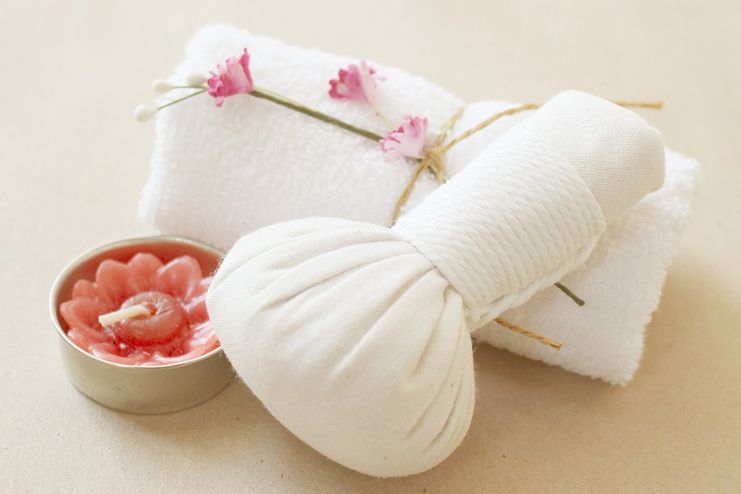 The application of warmth on the scab helps regulate the blood circulation around the area and also contributes to softening the dry and scalp appearance of the scab which is what helps heal scalp scabs fast.
The application of warmth on the scab helps regulate the blood circulation around the area and also contributes to softening the dry and scalp appearance of the scab which is what helps heal scalp scabs fast.
The heightened circulation of blood around the area contributes to healing the scab first without any kind of hindrance which is exactly what you want.
What To Do?
- Boil some water in a pan
- Wet a compressor even just a cloth with the warm water
- Press it gently over the scabs on scalp
- Leave it for 2-3 minutes
- Do this for a few times
How Often?
Two rounds daily.
Get Warm Compress here
8. Warm Oil Massage for Scabs on Scalp
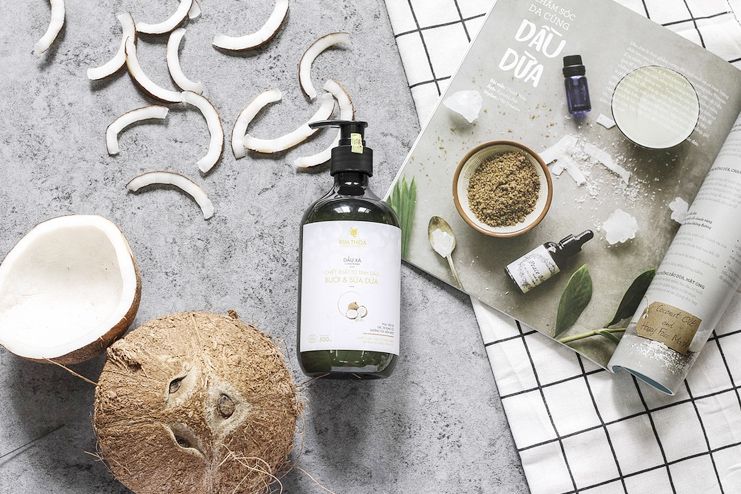 Hair oil massage is an amazing remedy for treating scabs on your scalp. The amazing thing about warm hair oil massage for scalp scabs is the fact that it not just moisturizes the scalp but also helps treat the lingering dryness and scaling skin that often tends to affect the area around the scalp.
Hair oil massage is an amazing remedy for treating scabs on your scalp. The amazing thing about warm hair oil massage for scalp scabs is the fact that it not just moisturizes the scalp but also helps treat the lingering dryness and scaling skin that often tends to affect the area around the scalp.
The massaging also increases the blood circulation around the scalp which definitely is yet another additional bonus that contributes to the faster healing of the scabs.
What to do?
- Heat some hair oil in a bowl in the microwave. Make sure you do so for not more than 30 seconds.
- Apply this on the scalp, especially the scab prone area and massage it in with light fingers.
- Leave it on overnight.
- Wash it off with some mild shampoo the next morning.
How Often?
Three to four times a week.
9. Aloe Vera for Scabs on Scalp
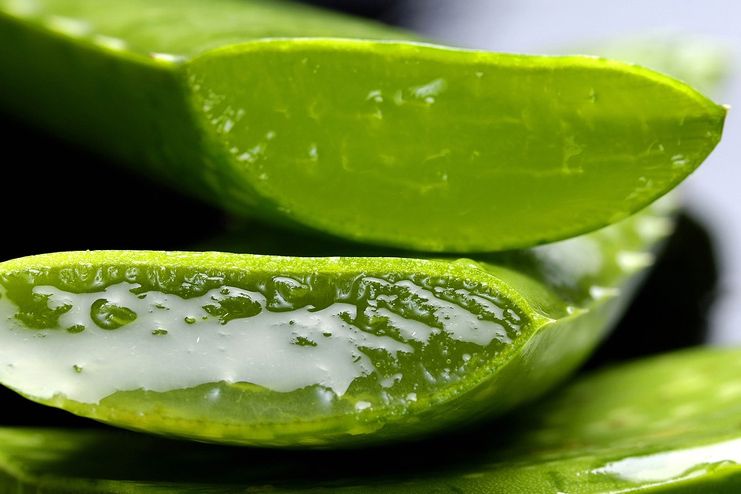 Aloe Vera is known for its beneficial moisturizing, anti-inflammatory and antioxidant properties which altogether contribute to the treatment for scalp scabs. While the hydrating and moisturizing property of the aloe vera beneficially contributes to healing the dry and dead cells, the antioxidant and antimicrobial properties (R) fight off any kind of infection inducing microbes on the scalp.
Aloe Vera is known for its beneficial moisturizing, anti-inflammatory and antioxidant properties which altogether contribute to the treatment for scalp scabs. While the hydrating and moisturizing property of the aloe vera beneficially contributes to healing the dry and dead cells, the antioxidant and antimicrobial properties (R) fight off any kind of infection inducing microbes on the scalp.
What To Do?
- Cut an aloe vera leaf
- Scoop out the pulp from within it
- Apply this over the scabs on scalp and leave it on overnight
- Wash it off with a mild shampoo the next morning
How Often?
Twice or thrice a week
10. Oatmeal for Scabs on Scalp
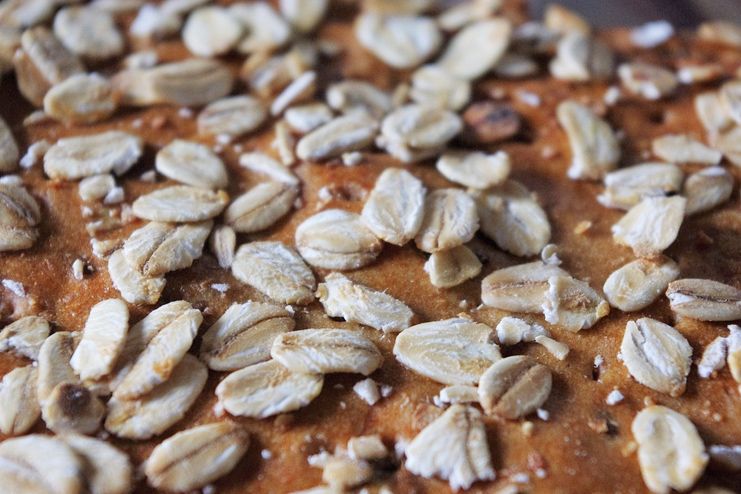 While you might be wondering how a breakfast item can possibly cure those pesky little scabs on your scalp, let me break the news to you that these actually do help clear that up.
While you might be wondering how a breakfast item can possibly cure those pesky little scabs on your scalp, let me break the news to you that these actually do help clear that up.
As shocking as it may sound, oatmeal does have amazing soothing properties on the skin and it also helps moisturize the dry and scaly skin of the scalp which is what causes the scabs.
What To Do?
- Ground some oatmeal in a blender
- Add some water to make a thick paste
- Apply this on the area of the scalp that’s littered with scabs
- Leave it on for 10 minutes
- Wash it off with some mild shampoo
How Often?
Do this daily till the scabs completely heal.
11. Listerine for Scabs on Scalp
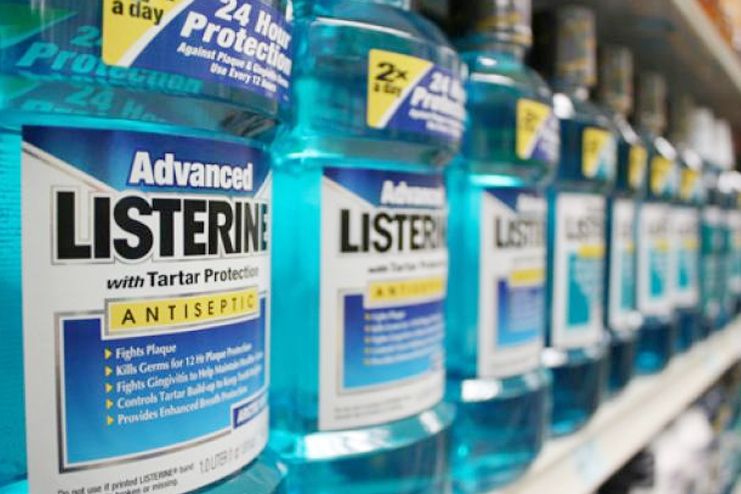
Don’t get deterred by the fact that we have included a mouthwash to treat scabs on scalp because trust me on this, it actually does work wonders.
The mild astringent and antimicrobial properties of this mouthwash has beneficial effects as a home remedy to treat scabs on scalp. If your scabs are primarily caused by any form of fungal activity, this is definitely the one you need to opt for. It helps clear out the fungal activities and cleans the scalp at the same time.
What To Do?
- Rinse your hair under the shower and wring out the excess water off from the hair
- Soak a cotton ball with some Listerine and apply it on the scabs on the scalp
- Leave it on for 10 minutes
- Wash it off with water again after that
How Often?
Twice or thrice a week.
Get Listerine here
12. Borax for Scabs on Scalp
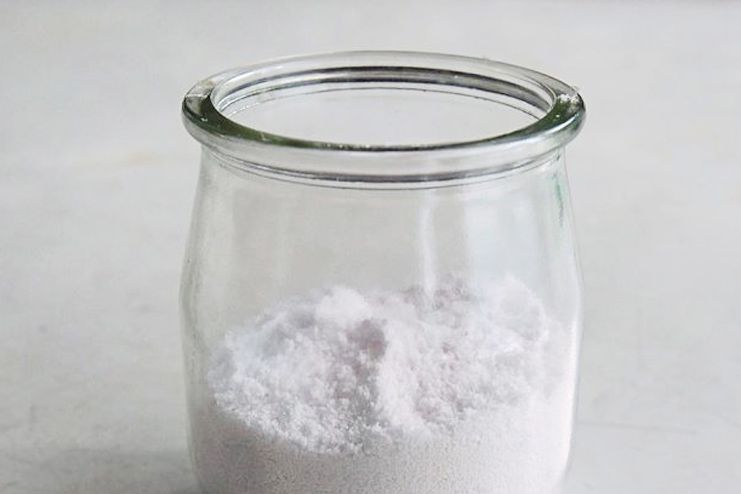
Yet one of the most effective yet underappreciated remedies for scalp scabs includes Borax. Don’t get deflected because of the “chemical” nature of this compound because is effective in the scalp scabs treatment.
This is best for treating the scalp scabs that are caused because of fungal infestation. The anti-fungal property of borax helps perish these microbes and prevents the further spreading of the scabs to the adjoining areas on the scalp.
What To Do?
- Mix half a cup of borax to around 4 cups of water. Dissolve everything properly to ensure that there are no lumps in it.
- Pour it all over your scalp and leave it on for an hour or so.
- Rinse your hair under the shower spray and ensure that there are no residues of the borax left behind on your scalp
How Often?
Three to four times a week.
Get Borax here
13. Neem for Scabs on Scalp
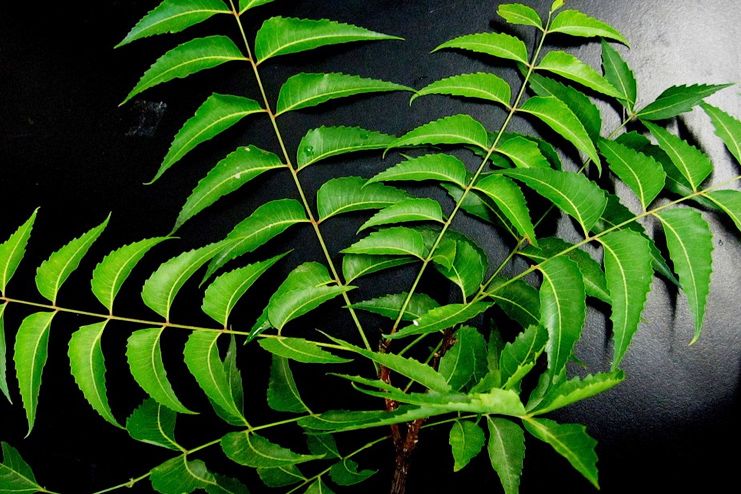
Neem and its beneficial features in treating skin problems is not an unknown fact. The antibacterial (R) as well as antifungal (R) properties prove fruitful in getting rid of scalp scabs with ease. Not just that, it has good disinfectant properties which further contribute to preventing any form of infection on the scalp that could further aggravate the situation.
What To Do?
- Boil some water in a pan
- Add a handful of neem leaves in the pan
- Boil the leaves in the water for 10-15 minutes to extract the maximum goodness out of it
- Let the liquid sit for some time till it completely cools down
- Rinse your hair and scalp with this
How Often?
Do this daily till the scabs are completely healed.
[Also Read: Side Effects of Neem Leaves]
14. Fish Oil for Scabs on Scalp
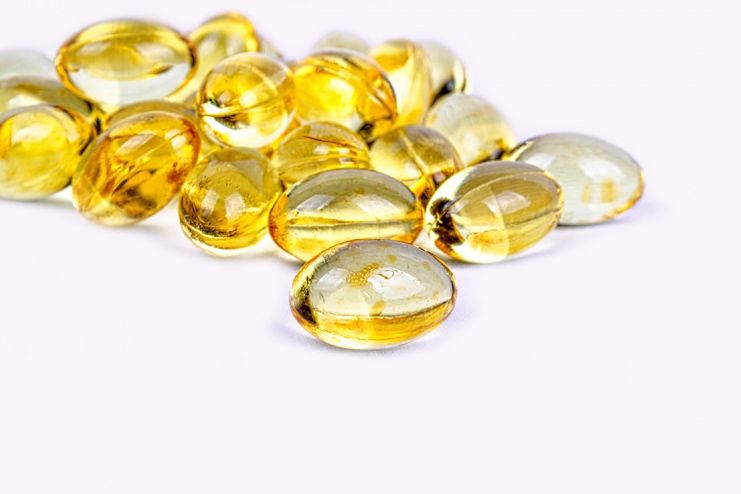
Fish oil is yet another amazing home remedy to treat scabs on scalp. The presence of omega-3 fatty acids is very beneficial in treating any kind of skin related ailment. It heals the skin from within and promotes the generation of healthier skin cells which is heftily affected because of the scabs.
What To Do?
- Mix one fish oil capsule to any carrier oil and mix it well
- Apply it on the scabs and the scalp on the whole and massage it into the scalp
- Leave it overnight
- Wash it off with some mild shampoo for beneficial effects
How Often?
Twice a week.
15. Tomato Yogurt Mask
Tomato is rich in vitamins and citrus and yogurt is a natural probiotic which helps in clearing bacteria and virus too. Both help in strengthening hair roots and nourishing hair scalp.
What To Do?
- Blend the two in equal quantities and make a mask.
- Apply this on your scalp and leave for 30 minutes.
- Now wash with lukewarm water.
How Often?
Repeat twice a week to get rid of scabs on the scalp in a few weeks.
16. Eggs to Remove Scalp Scabs
Eggs are protein-rich naturally occurring moisturizers which sooth, calm and condition hair and scalp.
How To Do?
- Just beat a few eggs and make a frothy white mask.
- Use brush or fingers to apply this mask on hair and scalp.
- Leave it covered with a shower cap for 30 minutes.
- Now wash it with lukewarm water.
It not only clears the scabs off but also nourishes the scalp too.
How Long Does it Take Scalp Scabs to Heal?
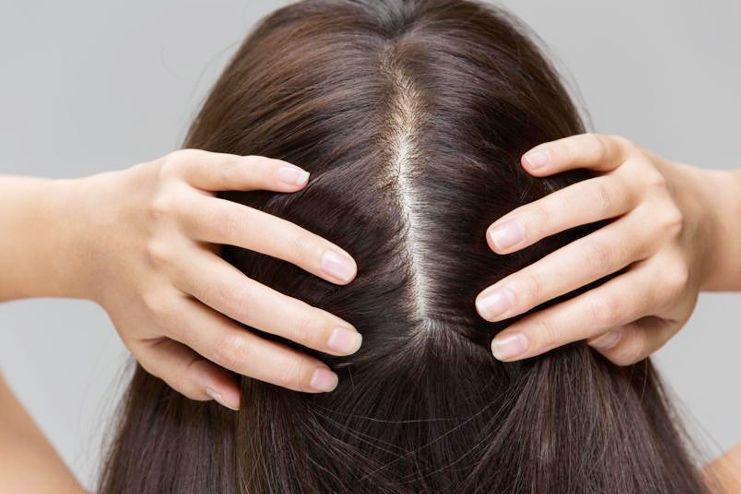
Scalp scabs often heal on their own without any excess administration of any kind of remedies or medications. But when the same is not the case, it often takes from a few weeks to even a month for it to completely heal.
If the situation is severe and has spread to the entirety of the scalp, chances are that it will take more time and varying measure to get rid of scalp scabs. From the point of administering any kind of treatment, it takes around a week to a month to completely heal depending on how severe the condition is.
Scabs on scalp often are a very common occurrence that is witnessed in a number of individuals which is why its recurrence is very common too. It is necessary to be very attentive to your hair and scalp health because the lack of it is what contributes to situations like these. We definitely hope these above mentioned remedies were helpful enough!
In this Article

